|
Originally published at Phaser Magazine *Disclaimer* This interview was conducted before the Covid-19 crisis.
The Shires, comprising Ben Earle and Crissie Rhodes, are the UK’s biggest selling Country act of all time, combining heart-warming harmonies with soulful storytelling. I sat down to chat with them about their brand new album, their tour, and bringing the Nashville sunshine back to the UK’s grey skies. Ben and Crissie, thank you for taking the time out to talk today! You recently dropped the single 'Independence Day', which is an empowering break-up anthem, and the previous single 'Lightning Strikes' is also about an ex, but it’s full of energy and excitement at the possibility of rekindling a lost spark. It would’ve been easy to make both of these sad songs. What made you want to turn them on their head, and make them sound more celebratory? Ben: That’s a really good question! It wasn’t a conscious thing, it’s kind of from seeing someone who’s going though a break-up and saying, ‘I know you’ll come through the other side, and I can already see you’re happier than you were before’. I think we’re quite happy people generally, and at live shows you can only get away with a handful of really sad songs. My opinion about music, as well as the media, is that I want to be uplifted. It’s also harder to write a song that picks you up. In what ways did you want it to carry on the bright, buoyant nature of Accidentally On Purpose, and in what ways did you want your new album, Good Years, to be different? Crissie: For the first three albums, we were so relentlessly in a constant ‘go-go-go!’ kind of mode. We were always here, there and everywhere, and it was hard to grab a moment and appreciate everything we’d done. We actually left our record label that we’d been with for the first three albums, and sat in limbo for a little moment without a label, before signing with CMG. We had a bit of time away from the craziness, and we got to spend time with family and friends, and get some normality in our lives. The songs are generally quite reflective, showing how we’ve been feeling appreciative of where we are in our working lives and home lives. Accidentally On Purpose contained a lot of crossovers into new genres and sounds. Is this experimentation something we can expect more of on Good Years? C: It wasn’t a conscious effort at the time. We were partying quite a lot in Nashville, and that was reflected in the songs we were writing for Accidentally On Purpose. We were influenced by the music scene there, and we were still trying to break America, so we thought going on the poppier side would cross us over. And it helped with the live performances, because the songs have so much energy and fun. B: I think we go back to our roots on Good Years. The irony with this is that in not trying to target the US as much, we now have more support there than ever! It’s funny how that wasn’t even really part of the plan, the aim was just to record the songs the way we wanted them. There’s generally been a lot of genre-blurring involving Country over the past few years. How do you tread the line between pleasing the die-hard Country fans, and also infusing this with Pop and Dance impulses? Do you ever feel restricted in a sense by the ‘Country’ label? B: Trying to please everyone is the hardest thing. You just don’t need to, there are always going to be people that say ‘It’s not Country enough’, or ’It’s not Pop enough’, and so on. C: As long as you can release something you’re proud of and 100% happy with, that’s the main thing. It’s always going to be open to opinions - I remember having a chat with a fan when we’d just released Accidentally On Purpose, and he mentioned about us going Pop, and he wasn’t pleased. But sometimes you have to broaden the genre to give other people a taste as to what Country is all about. B: Crissie’s right that at that time, we loved that record, but Good Years is definitely us now. You’re about to embark on another huge UK tour. Do you prefer the writing and recording process of the album, or is it more fun finally getting to showcase the new material live? B: I think the live show is kind of the pay-off, the celebration at the end of the whole journey. When you’re sat in a room in Nashville or in the UK, you just have an idea for a song, and then you go into a room with your notes and it becomes something tangible. I personally love that, and if I could do just one thing for the rest of my life, I would do that. You get that moment of ‘Wow, I love that song'. At the same time, you’re trying to make something that’s perfect, so it is quite intense. You’ll do a thousand vocal takes, and you go a bit neurotic - it’s exciting and nerve-wracking. So when we finally get to our tour in April-May-June, we’ve gone through the process, and you can tell which songs really connect with people. For me, that’s the most enjoyable part, but it’s not the part I’d do for the rest of my life. Having said that, it is great to connect with people in a moment, live, and that’s why live music is so popular still. I was lucky enough to see you both perform in Oxford for your Accidentally On Purpose tour. Are you excited to be back this year? C: Yeah, we’re very excited! We’re putting it all together at the moment, sorting out the staging, etc. It’s hard to pick the setlist - we’re trying to make it work as best as we can, because we don’t really want to drop any songs! B: Yeah, last time in Oxford we went to a quirky, underground bar, and we had a good party there after the show. The New Theatre is brilliant as well - I love how old-school it is. You’ve introduced a whole new generation in the UK to Country music. Do you think the genre will continue to grow in the UK over the next decade? B: Culturally, I’d like to think we’re post-cool. It used to be that you have your record collection and people would come and judge it - ‘Oh…you listen to the spice girls?!’ Now it’s more personal, because it’s just on your computer or phone. Country music really reminds me of the Noughties, the sounds and the things they’re singing about. Like if I wanted to talk about getting high with my friends, that would be too risqué and they’d be like ‘You can’t say that!’. Compared to the Hip-Hop world, it’s very innocent. Also with streaming, even more of an audience can come on-board. I think it will get bigger and bigger. C: Absolutely! I think it’s still in its early days, but more and more people are enjoying the genre. More people are proud to say they love Country music. It’s funny we’re still trying to promote it, because we’ve been surrounded by it for seven solid years, and it’s crazy to think people don’t know about it yet. For you both personally, what’s your favourite song on the new record? B: Mine is between ‘On the Day I Die’ and ‘Crazy Days’. As a writer, I was always chasing ‘I Just Wanna Love You’ [from debut album, Brave], I remember writing that song really quickly by myself. It was just so honest and pretty much just a conversation. As much as I love writing in Nashville, sometimes there’s a lot of pressure to do something clever. That’s the Nashville way, and they’re geniuses at it, finding an idea or lyric and turning it on its head. Some of the biggest songs, though, are just straight up. ‘Crazy Days’ was me at home in my shed, with a piano, and I wanted to sing to my wife about how it’s hard because we’re away a lot, but it’ll be worth it. It’s a very honest and real song. C: I remember hearing that for the first time, and it was everything Ben had always sung about. That's him at his finest, and I was a big fan of that from the get-go. He would just talk about that situation, and he means every word. I can draw from that, that it is crazy, but it’s a great reference song to bring you back down to reality. Also, I love the sentiment behind ‘On the Day I Die’, where you’ve lived the best life you can, and it’s all about appreciating every day. It was a real pleasure to sing. Artists will often be going through something, and they pen lyrics that can really help the listeners who are going through that same struggle. ‘Naked’ is a perfect example of this, as it’s all about seeing someone for who they really are and accepting their flaws, and trusting them to accept yours. If you could pick just one, which song of yours would you want listeners to pay especially close attention to, that you feel can help people the most? B: ‘Brave' is that song for me. I think I wrote it seven years ago, and it was a dark time for me to be honest. Similarly to ‘Naked’, I wrote it for myself, just to say you don’t have to be so brave all the time, and it’s okay to to tell people you’re not feeling 100%. That’s an important message. I have two young sisters, and they have their battles stemming from social media. I think it’s easy to put on this front of ‘I’m doing great’, ‘I’m on holiday’, etc. whereas a lot of people are struggling behind that. So I think it’s important that they have someone they can let their guard down to. You recently performed with 5,000-8,000 children as part of the Young Voices choir project. You’re undoubtedly role models and inspirations for numerous young singers, songwriters, and bands out there. What would be your main piece of advice for anyone trying to break into the music industry? B: It’s so hard not to fall back on clichés. From personal experience, I tried for so long to write a song to sound like someone. C: Yeah, I tried to fit moulds, to be someone I didn’t believe 100% to be me. B: Exactly, but when I found Country, I just made music that I loved. It’s the same with anything you do, as long as you actually love it, then no-one can take that away from you really. Switching that question around a little, who in Country music is inspiring you right now? B: Lady Antebellum have been an incredible inspiration for me. Also Nina Nesbitt, and I know she’s not Country, but she co-wrote ‘Naked’. When we first met her, she was without a record deal, and it’s great now seeing her do what she loves, and just be who she is. Suddenly in the last two years she's found great success, just because she’s being herself. We went out with her in Nashville, and I think her songs are so her. I read somewhere that you both met on Facebook through a mutual friend. Songwriting can be an incredibly personal process, and can involve putting yourself in quite a vulnerable space. How long after you two met were you able to feel comfortable enough to really open up lyrically in this way to one another? B: We’ve always been honest, and there’s no ego with us. If I throw out a bad idea, Crissie’s open enough to tell me that it’s bad, and vice versa. But it’s a myth that in every songwriting session people sit down and pour their hearts out. C: When we met it was all work based, we’d sit together and write songs that we thought we should write. We didn’t really pour our hearts out as such, the more sessions we had, the more we realised it’s quite an open space in a writing room, and some things get blurted out, and everyone’s quite open and understanding. In the studio, usually you sit down and chat with the writer, and catch up a little. For the song ‘Accidentally On Purpose’, I was just talking about leaving Nashville the next day, and I was genuinely just telling the guy that I wanted to stay a bit longer, and I was just chatting and telling him what was going on at that point. I did not expect to be writing that song on that day! It’s just kind of amazing that it happened like that. You’re the UK’s biggest selling Country act of all time. Do you feel more pressure each time you release a new album to live up to this reputation, or does it give you an added boost? B: I definitely feel more pressure every time. I turned my shed into a writing room, and I asked the decorators to put my gold discs as far away as possible from me! It’s funny, I’d say to our manager, ‘Once we’ve sold this many records, I’ll feel comfortable and relaxed’, and he just said, ‘You’ll never feel relaxed!’ The goalposts change. We both want to be the very best we can be, and the other stuff that comes with it, that’s not as important. You can’t forget it’s the music that drives everything. C: When we write the songs and record, I’m a pretty go-with-the-flow person, I never focus on the business stuff. I’m just enjoying the process. When the album’s ready, and it comes to realising there’s so many people involved, and so many things to do, that’s the only time when I feel pressure about it. We’ve done our bit recording the songs we love, and everything we put into it is everything we could do at that time. It’s the business stuff that always adds the pressure - you don’t think about that when writing and recording. There’s also always pressure in putting the tour together, but when you’re on stage you don’t have to think about anything else, it’s just about getting up there and just being in that moment. The Shires’ new album, Good Years, is out now on all platforms. Maxim Mower
2 Comments
UK singer-songwriter Kelsey Bovey shows why she’s one to watch on her new single, ‘Magnetic’, which officially drops on Friday 22nd May. While modern music might be moving away from typical song structures, there’s one thing that will surely never become ‘old-fashioned’ - and that's having a killer hook. Boy, does ‘Magnetic’ have one. It wriggles itself into your head, and part of its appeal is the meaning Bovey puts into each lyric (“The way you’re talking to my soul it’s magnetic”). She delivers it with an intensity that seems both euphoric and pleading at the same time, and that’s part of what makes this song great. It’s a jubilant love song, but there’s an undertone of hesitancy (“I’ve been broken in pieces/There’s a hole can you heal it”). Bovey manages to bring in a level of intimate vulnerability, without sacrificing any of the song’s overwhelming joyfulness, a balance that isn’t easy to strike. Listening to Bovey’s 2019 It’s My Time EP makes it clear that she wants to draw her listeners’ attention to the silver linings rather than the black clouds, something that is especially evident on ‘Positivity’. ‘Define Me’ wraps a striking melody around another set of empowering lyrics, and what better time to be driving home this message of optimism? It can sometimes feel lazy to liken an up-and-coming, female Country-Pop artist to Kelsea Ballerini (especially given the similarity here in first names). But over the years Ballerini has cultivated a cross-genre style without losing any of her originality, something that’s especially evident on her recent album, the dance-heavy ‘Kelsea’.
Bovey shows signs that her sound is set to be just as open-minded and diverse, favouring powerful, energetic soundscapes over slower, guitar-driven tracks. ‘Magnetic’ features slick, lustrous production from Andrea Succi and Danny McMahon, the latter of whom was crowned Country Artist of the Year at 2019’s UK Country Music Awards. Speaking about the new song, Bovey says: “Magnetic is a spontaneous love song that I feel everyone has experienced once in their life, when you share the reasons behind your feelings for that someone special. This came from a place of uncertainty, when you start a relationship and you find the person that is right for you, but you're scared of falling in too deep because you’ve been hurt before” ‘Magnetic’ is heartfelt, captivating and, most importantly of all, uplifting. Watch this space, Nashville - there’s a new 'Kelsey' on the block… 'Magnetic' is released on Friday 22nd May. Maxim Mower
It's clear that we often lean heavily on music when we are going through something. It has the powerful ability to lift you up, to relax your mind, or to simply let you know you're not alone in your struggle.
Of course, usually music alone is no remedy to the troubles we face, but it can be helpful nonetheless. Different people can draw out different meanings from various sets of lyrics, such is the subjective beauty of art. The following is a selection of hand-picked lyrics that are aimed specifically at easing your worries and allaying your fears. Some may become new cri de coeurs, some may simply wash over you without having much effect. But hopefully in shining a spotlight on particularly useful lyrics, there will be at least one that will really resonate with you... Don't you worry, don't you worry, child/See Heaven's got a plan for you 1. Swedish House Mafia, Don't You Worry Child You don't have to believe in Heaven, or be religious at all for that matter, to appreciate this. Personally the message I gain from this is that no matter how low you are feeling, or how difficult it may be right now, in the long run you will always be okay. I have a saying that I'm always annoying my friends with - 'Even when it doesn't go to plan, it does'. This could be God's plan (shoutout Drake...), the Universe's plan, or simply your ultimate plan for your life. In the end, the struggle makes you who you are. Oh, my darlin', put your worries on me/Can't judge you 'cause I feel the same thing 2. Ed Sheeran, Put It All On Me feat. Ella Mai I really like this one, because it sounds fairly generic at first, but peering deeper into it reveals a significant message. For me, it's the idea that it's okay to ask someone for help when you're going through something. Don't be too prideful or too ashamed to lean on other people. There's a good chance they're going through something similar. Have a look at my review of Ed Sheeran's 'No.6 Collaborations Project' here Ain't in no hurry, I'd be a fool now to worry/About all those things I can't change 3. Zac Brown Band, No Hurry This is the central Zac Brown Band mantra of 'Que sera sera', and to not let things that are out of your control get you down. If you have a problem, address it, and if there is a solution go about achieving it. If there is no solution, then leave it behind. It's irrelevant. Check out a more detailed look at No Hurry in this Self-Help Songs post Everything that's broke, leave it to the breeze/Why don't you be you, and I'll be me? 4. James Bay, Let It Go This is a great quote, because it echoes the previous notion of letting things that are out of your control go. Often we can torment ourselves over what could have been, or what we should have done. "Leave it to the breeze", and don't be stuck in the past. Also, this takes on another meaning in the sense of what you might see as 'broken' parts of your personality or appearance. Just be yourself - we hear it time and time again, but it's true. Why be someone you're not, when you're awesome just the way you are (shoutout Bruno Mars...) Today I missed my workout, but it worked out/Now I'm missing work now, but it worked out 5. Chance the Rapper, Work Out Okay, this seems like a random quote to have included. But it resonates with me quite strongly, because I think we can overthink the details of our lives, and be too hard on ourselves when we don't match up to our expectations. It's great to be disciplined and driven, but cut yourself some slack - don't be too hard on yourself (shoutout Jess Glynne...okay, I'm going to stop with all the cross-referencing now...!). Also, remember to have fun! Charlie Hoehn wrote a great article about how 'Play' cured his anxiety, read that here. You might also like...Self-Help Songs, 'How to Be Positive', by Chance the Rapper Gonna to put the world away for a minute/Pretend I don't live in it/Sunshine's gonna wash my blues away 6. Zac Brown Band, Knee Deep Yes, I know, it's ANOTHER Zac Brown Band song. Talk about biased. But this artist more than any other epitomises for me the feeling of just kicking back, relaxing, and taking the strain off of your mind. They're not talking about a literal vacation here, it's a mental one. We all carry around with us personal spas in the form of meditation. Get away for free! Then I felt my pulse quickening/But regrets can't change anything...Joy, set my mind free/I was giving up, oh, I was giving in 7. Bastille, Joy Another poignant lyric about letting the past be the past. Don't agonise and torment yourself over something you can't change. Also I added the second part of the lyrics, because it emphasises the positive message of the song. Just when you are thinking of giving in, don't! Relief from your pain could literally just be around the corner. And when all broken-hearted people/Living in the world agree/There will be an answer/Let it be 8. The Beatles, Let It Be This iconic song is probably most famous for having an amazing melody, as all The Beatles' songs do. But the lyrics really hit home, and underline what a lot of the other lyrics in this article have been saying. Don't fight against an immovable obstacle, especially if it is behind you - turn around, and let it go. Let it be. Maxim Mower You might also like...'Self-Help Songs, How to worry less'Just when you think you’ve found the right box to place songstress Maryze in, she eludes your grasp once again, her sultry voice slipping through the fingers of Pop, into R&B, and then into EDM. Like Moons is impressively diverse. The EP opens with ‘Safe’, a slow-tempo track that lulls the listener into a false sense of security. It is immersive, and easily allows you to drift away in the midst of the atmospheric production and Maryze’s ethereal, uplifting vocals about self-love. ‘B.O.Y’, which stands for ‘Because of You’, is another slow-jam, a synth driven track, with Maryze crooning wistfully before she leaves the catchy riff to breathe. It sums up the vibe so far - the lulling background provides the soft bed upon which the listener can just sit back and relax, while Maryze cuts through the haze with insightful musings. ‘Their Hearts’ and ‘Dis-Moi’ are earworms that stand side by side on the record, and highlight Maryze’s ability to amp up the drama. Her mystical, light voice invokes comparisons to Jhené Aiko, another fan of creating a dreamy ambience in her music. ‘Dis-Moi’, however, sang in French, is the song that makes you stop and really listen. For the first time we hear an edge, the frantic synth that rises up behind Maryze’s hook, mirroring the increasing tension and desperation in her voice, pleading the song’s subject to ‘Talk to me’. ‘Dis-Moi’ shifts Maryze from being really good, but perhaps flirting with predictability, to being truly dynamic and exciting. It sounds like the kind of track that could have been written for The Weeknd, and the bassline contrasts perfectly with Maryze’s high range vocals. Maryze cuts through the haze with insightful musings The album finishes to a slower beat, with ‘Special’ taking us back to the calmer terrain of the opening tracks. It completes the EP beautifully, with each song showcasing Maryze’s strengths and her versatility to move across genres, while staying true to her core sound. You get a clear sense of Maryze’s openness in expressing her emotions, and this vulnerability allows the listener in. She encourages you to lower your own walls, as you experience her removing hers. This is a project about being honest to yourself and others - an apt message in an era where how you appear outwardly, whether you are a celebrity or simply a social media user, for example, seems to matter more than how you really feel on the inside. Like Moons is a meditative, tranquil 5-course-meal, throughout which invigorating flavours and warming notes create a soothing balance, the result being an undoubtedly whetted appetite for Marzye’s next release. Maxim Mower George Ezra, Get Away
“It's never been this way before Shut down by anxiety" George Ezra acknowledged in 2018 that he had been suffering with anxiety, and ‘Get Away’ tackles this issue head on. However, the overall message is an optimistic one, and highlights how when we step back and stop for a moment, we can often realise that our worries are not as significant as we once thought. “He's dreaming of a blacked out car, screaming: "Move over!”” This line really resonates with me, because being at Uni it often feels like we’re expected to step straight onto the treadmill of suits, chai lattes, and office desk plants without giving it a second thought. Ezra contrasts the work-based aspirations of the character driving in a tinted car, with the screaming of ‘Move over!’ hinting at the more fast-paced and stressed out lifestyle this can entail. He contrasts this with the following line, “He’ll be flying through the sugar canes, screaming: “Move over!” While the line is almost the same, the picture it paints is of a much more carefree person, out in nature, and the ‘Move over!’ sounds more like a child that is keen to continue their race through the fields. “And I'm running down a mountain side when I close my eyes And I'm a leader of a big brass band when I close my eyes” Ezra continues to provide more fun and wide-eyed fantasies, showing us the scope of his imagination. This links back to his idea that modern generations can become ‘shut down by anxiety’. It is interesting looking at this from a student's perspective, because often I'll devote a lot of my day-to-day thinking time to degree-related worries, such as 'Am I going to get this essay finished?', 'Have I read enough?', 'Does my tutor think I'm stupid?' But then as soon as the weekend hits, and I have a day or two off, there's a really weird feeling of confusion. During the week there's been all these small, work-related distractions, so when I stop working and these distractions disappear, all the bigger, existential questions start flooding into my head. 'What am I going to do with my life after Uni?'... 'Am I really happy studying like this?'... 'What do my friends think of me?'... Then, because these questions are uncomfortable, I inevitably start filling my mind with the smaller distractions again, and the cycle continues. "You better get away, boy You better get away" I feel like George Ezra isn't just talking about taking a vacation (although that often helps!), he means stepping back from the hustle and bustle of our daily lives, and finding time to just be present, to be in the moment. It's the constant chasing our tails and finding distractions that leads to the feeling I mentioned earlier, where when all the distractions are gone, we're not really sure what to do with ourselves, and we feel a bit empty. I guess for me personally, the message I receive from these lyrics is to stop trying to find distractions, and just appreciate each moment. And confront the uncomfortable questions. Don't run from them, tackle them head on and see how they can be dealt with - if there is nothing we can do about it right now, then it's irrelevant. If there is a solution, then make a plan for attaining that solution. How to Worry Less #1 - Confront your problems, know your enemy In 'The Art of Happiness', the Dalai Lama likens training your mind to deal with problems to preparing an army for battle. If you confront the enemy, learn their strengths, their weaknesses, and their tactics, then you are in a much better position to defeat them. By contrast, if you bury your head in the sand and simply hope the enemy will be defeated, you are in a much less advantageous position. Know your enemy - and know your problems. "Any boy can dream, dream of anything Just like you" Like I said before, George Ezra's overarching message is one of optimism. It seems the way we are told to look at the world, our careers, our lives, makes us forget to open our minds to the more wondrous possibilities out there. We are told to look at the options as being A, B, and C, where for example, A is University, B is an Internship, and C is an Apprenticeship. But sometimes looking at life in this fixed way, and looking through the lens that society has nudged us in front of, we miss a whole host of possibilities. Who says that the only routes we can take are A, B, and C. What about X, Y, and Z? Or 1, 2, and 3? I feel like George Ezra’s message here is to keep your mind open, and don’t get bogged down in worrying about the little things, like what car you’re driving or how late you are for that 9am meeting. Life is obviously about more than that. How to Worry Less #2 - Keep your mind open When you close your eyes, are you driving the blacked out car, or flying through the sugar canes? Yours sincerely, but not too seriously, Max.i’m I don’t know about you, but whenever I listen to new music, there are two voices in my head.
Considering there is usually just the one, and that one voice is more often than not preoccupied with repeating the phrase ‘I’m hungry’ all day, this struck me as odd. When I’m there with my headphones or speaker playing out the latest track from a hip hop heavyweight, or perhaps a country megastar, the first voice is always my initial reaction. This is ‘The Fan’ in me, who is a sucker for an electrifying beat and a blistering hook. Preferably, if it’s hip hop, I like a good helping of auto-tuned emo-rap, or if it’s something more poppy or country, then just a simple earworm of a chorus and some warm, nostalgic lyrics will do the job nicely. ‘The Fan’ knows exactly what he likes, and can usually tell within the first few lines of a song whether it fits the bill or not. Then there’s the second voice - ‘The Critic’. Obviously in running this blog, and in having worked as Music Editor for various student newspapers, if I let ‘The Fan’ do all the talking, then it would result in some very biased reviews. ‘The Critic’ is that voice inside us that we all have whenever we make a decision or judgement call. It’s the voice that coughs a little disapproving ‘ahem’ whenever we reach for that tenth chocolate bar, or that sighs as we opt to watch yet another episode of Black Mirror instead of working on that essay due in for tomorrow. It might seem strange that this voice pops up when I’m listening to music, as surely there is no real right or wrong in terms of what we listen to - if you enjoy it, go for it, if you don’t, then feel free to steer clear, right? But donning the prestigious title of ‘Music Writer’ (I swear they should give me some letters after my name for that) generally means adhering to the assumption that there is some objective standard of which music is good and which is not so good. Otherwise, why should anyone take any notice as to whether the New York Times’ top Music Writer says a new album is great, or that it’s terrible? Having said this, personally I think music is clearly subjective, and I think most would agree with this. How else can you explain the fervent adulation given by some fanbases to Kanye West, and of others to AC/DC? Of course, certain artists such as The Beatles or Elvis Presley are generally accepted to have made ‘good music’, and few would contend with this. So it’s a bit of a murky picture - which voice should I listen to more? ‘The Fan’ who immediately streams anything that Travis Scott so much as breathes on, or ‘The Critic’, who hears ‘The Fan’’s snap judgment, but asks, ‘You might like it, but is it actually good?’ I’m undecided. So from now on I’m going to split some of my reviews into two sections. The first part will be ‘The Critic’ speaking, and will generally be how I would go to write a standard article. The second part will be space for ‘The Fan’ to let his opinions run wild. I’ll leave it up to you to decide whose tastes you prefer, and whether we should generally listen to ‘The Fan’ within us, or ‘The Critic’… Stay tuned for my next review, on Jaden’s ‘ERYS’, which will be posted in the next few days. Yours sincerely, but not too seriously, Max.i’m this article was originally published at phaser.com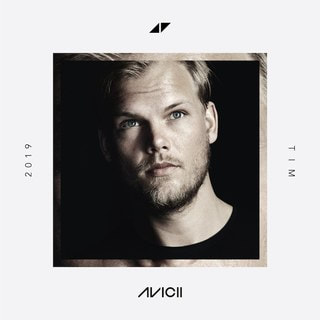
Posthumous albums are always a tricky business. It is so difficult to get the sentiment right, to make sure the intentions are clearly to honour the artist, and not just to achieve material gain. There is even a question as to whether this music should be released at all.
It is clear from reading interviews with the likes of Vargas & Lagola, Aloe Blacc, and Carl Falk, all of whom worked together to complete Avicii’s TIM, just how much they cared about their late Swedish superstar and friend. Songs from TIM are difficult to listen to now, they say, and the nature of the songs on the new album make it evident why this is so. It would be easy to read TIM as heavily foreshadowing the DJ’s passing. It is pervaded by darkness, with the first track, ‘Peace of Mind’, opening with the lyrics, Dear Society, Bad Reputation tells the tragic story of someone hiding their depression (“I don't want to be seen in this shape I'm in/I don't want you to see how depressed I've been”), while ‘SOS’ pleads for a lover to come save them from their insomnia (“I get robbed of all my sleep/As my thoughts begin to bleed”). Having said this, it’s strange reading through the lyrics of TIM, because on the basis of them alone it’s hard to view the album as anything but a suicide note from Avicii. However, listening to the album is an entirely different experience. The melodies are often tinged with sadness, and Carl Falk explains that Avicii would combine major and minor chords in the same line, the latter giving the songs a feeling of wistfulness. But there is an energy about each track, a sense that Avicii hadn’t lost his feeling of wonder and inspiration that shines through so prominently on his Stories hit, ‘The Nights’. ‘Never Leave Me’ is a boisterous, euphoric ode to a loved one, continuing the theme from SOS with the lyrics, She knows how I’m feeling, 'Heaven’, his collaboration with Chris Martin, is undoubtedly the standout track, and one that fans have been waiting for since it was teased in 2014. It is overwhelmingly uplifting and positive, and initially it seems a little odd that it is positioned as the second track on TIM, as it could have provided a concluding note of happiness as the album closer. But then you remember the most tragic aspect of this album - it’s a tribute to a story that didn’t end happily. The track that was chosen to finish TIM, ‘Fades Away’, epitomises how perfectly the sentiment of the album was judged. It references the ‘troubled times’ and the ‘trials to find somewhere we belong’ that have coloured the preceding eleven songs, but ends on a note of optimism, All I know is that with you I’m moving on 
This album carries such an emotional weight with it, that it was always going to be tough to find the balance between tones of positivity and regret. TIM finds this middle ground in a way that few other posthumous albums succeed in doing, and in my view, this is Avicii’s best work to date. His collaborators spoke with sadness about how it felt like he was on the brink of something massive musically, and how he would never get to execute this vision. TIM is as close as we can get to the perfect tribute, and the perfect reminder of how influential and talented Avicii was. I think it is easy to underestimate the impact Avicii has had on music, and people, around the world. The testimonial message board on his website is evidence of this, with tributes being posted from a whole range of nationalities - there are few artists whose music has touched so many people. We all remember when ‘Levels’ broke into the charts back in 2011, and essentially set the tempo for a decade that would be dominated by House/Pop fusions from EDM titans such as Calvin Harris, David Guetta, Martin Garrix and The Chainsmokers. Avicii’s crossovers into Folk, Rock and Country music broke down genre walls and introduced many new artists to fans that would not normally be interested in these kinds of music. On a more personal note, it seems apt that I’m writing this review in the lead-up to Father’s Day. Zac Brown Band is my father and I’s favourite band, and we always have one of their CDs loaded into the car stereo, ready for our road trip sing-a-longs. The paths of our music tastes don’t often meet, but this is a great instance where we can really share our love of music with one another. And the only reason I ever heard about Zac Brown Band, was because they were featured on the Avicii song ‘Broken Arrows’, and I thought hey, why not give them a try. Equally, I remember playing my dad Avicii’s ‘The Nights’, and he fell in love with the carpe diem spirit of the hook, He said, one day you’ll leave this world behind, Before any big event in my life, my dad will still text me the words, ‘Remember, these are the nights!’, just as a reminder to make the most of every moment. It seems a bit trivial to call an EDM song my favourite song, but because of the meaning associated with it, ‘The Nights’ is definitely up there for me. Avicii has had a much bigger impact on me that I would have ever imagined. While the album is heavily tinged with grief, TIM is also the perfect celebration of Avicii’s talent in creating music that resonates with his listeners. Despite the pained lyrics and the tragic context, TIM has at its heart the message Avicii always tried his best to convey - one of hope. Maxim Mower Get this amazing album on CD or Vinyl below 'We are never getting back together' - Was Taylor Swift right to break up with streaming services?3/3/2019 Hey Guys! This is a Guest Post, written by my super-talented best friend, David Dawson, who's in his final year studying Music at University (so he probably has more of a right to judge music than I do!). Hope you like his piece! Who remembers the good old days when you would log onto iTunes and buy a song for 99p, or when you’d rip all your cd music onto your Sony Ericsson with the slide up screen to then sit on the back of the bus eagerly Bluetoothing them all to your mates? To say this was still happening less than ten years ago is pretty crazy, especially in comparison with how most of us consume music these days. I am one of the millions of people who pay monthly for the pleasure of accessing all of my favourite tracks in one place and in one convenient app. I imagine that most of the people who read this will have some use or experience of Apple Music, Spotify or any other streaming service, whether it’s using seven different email addresses to push your 30-day trial to the max, having a free membership at the sacrifice of adverts or paying a full subscription. My question is, should we? Obviously, as a consumer the benefits seem logical, why wouldn’t we want all the music we could think of, and more, all playable from your tinny mobile speaker? Streaming services allow us to access music in a way we have never experienced before, giving us the chance to not only enjoy the same tunes we know and love, but to find new music quicker than ever. Obscure music for me used to mean Track 10 from an album only known for the title song, but with streaming services you can pick yourself a band no one has heard of and shove it in the faces of your mates hoping to get discovery rights - should they hit fame. So, what is my big issue with streaming? Well, it’s not exactly a secret, thanks to Taylor Swift and Jay-Z, that artists don’t get much money from streams. In fact, one single stream normally amounts to a fraction of a fraction of a penny being paid out to the artist. Of that tiny pie, the record label eats most of the good stuff, leaving only the accidental fruit seed and that little bit that got dropped on the floor for the artists. A look into the proper figures would tell us that labels actually do pretty well from our extensive use of streaming, with the three major labels making a combined $6.93 billion in 2018, and that this is up ten per cent from the figure in 2017 and will probably rise again for 2019. This for me causes an issue with our perception, as we all know a tiny piece of a near $7 billion dollar-sized pie is actually pretty big, but does that make it fair? When Taylor Swift decided to effectively boycott streaming services, removing her music initially in 2012 and refusing to release her new album at the time, Red, on their services, I, as I imagine many people did, scoffed at the news. The thought of someone like Taylor Swift complaining about how much she was being paid seemed almost laughable to me, and I certainly wasn’t going to make a wooden sign and start marching in her support. But should we have all done more to get on her side? Yes, Taylor Swift doesn’t exactly need more money, but the reality is that streaming services don’t get artists the money they deserve for the hard work they put into their music, and this is what she was protesting. Whatever job you do, and however much you earn, I’d say it’s fair for anyone to ask for an acceptable amount of payment. Of course, Taylor was brought around once some terms were put in place, but the picture hasn’t much changed since. The issue for me seems to be that streaming services have the monopoly. Even for a huge artist, if your music is not on all the major streaming sites it is a fact that the exposure you and your music gains will be smaller, and as streaming counts for charts these days, your chances of hitting higher in the Top 40 is significantly reduced. This still may be hard for most people to relate to, so the issue I would raise, and the main issue as far as I am concerned, is how this affects smaller artists and new music. Being a user of Spotify I know how great it is for discovering new music, as is Apple Music and other streaming services. I can easily find playlists to match my exact needs or mood, or that fit into a particular genre that I enjoy, and within these playlists, while I may find some of my old favourites there is almost always one or two new tunes that really catch my attention. Therefore, for an artist that is just starting out, or even on the way up, is not being on the popular streaming services really an option? The priority for these artists at this stage is obviously to gain as much exposure as they possibly can and to find an audience for their music, which streaming allows. However, artists like this often don’t have huge backings of record labels and to continue recording music and trying to expand revenue is a requirement. When we consider these artists, instead of millionaire popstars, we start to realise how unfair payments for music are a big issue, which is why I questioned whether we should have offered more support, or at least approval, when Swift tried to make a point. Similarly to how Swift threw her own weight around to make some progress, other larger artists are actually able to use their popularity and streaming figures to negotiate more favourable terms for themselves. However, this is a luxury that smaller artists do not enjoy, meaning that while established and rich artists may be able to make some extra money, those with smaller followings and less financial backing are only able to make the minimum, supporting that age old saying about the rich getting richer whilst the poor get poorer. Jay-Z was another big name who recognised the injustice, setting up his own streaming site, Tidal, and moving all his music across. Despite Tidal paying more, it is still significantly small amounts per stream, which still means that artists would have to get thousands of listeners to make any significant amount, which for most artists starting out is not a reality. The ultimate point that I am trying to make, therefore, is that as much as we use or enjoy streaming services, maybe we should have been marching with Taylor and supporting the progress she was trying to make, and that now we should still be scrutinising these big streaming services and trying to generate change. As was the problem with Swift’s actions, it is hard to get people to empathise or sympathise with a millionaire expecting more money. But I would emphasise to people that no matter what their vocation or salary, if they were not paid a fair amount for their honest labour, they too would feel a lack of justice, and that when we consider the smaller artists attempting to make a career for themselves, is it fair that they have to accept tiny payments in exchange for their exposure and advancement? After all, there would be little point in having a great platform to enjoy music on, if there was no new music for us to enjoy. David Dawson How to De-Stress #1 - Slow Down So you’ve heard it a million times. Yes, ok, we get it. The world we live in moves at too fast a pace. But quite frankly, what are we supposed to do about it. I’ve got an essay in for tomorrow, an internship application to sort out and lots of baying blog followers to please with a steady flow of posts. Well, maybe the last one was a bit of an exaggeration, but still, it seems easy to just tell people they’ve got too much going on without providing an actual solution to it. I feel like this song gets to the crux of the matter in a really simple, convincing way. ‘No Hurry’ is about (spoiler alert) slowing down, and just taking a moment to breathe. Because in this day and age, we do have a million things to think about. Certainly at University, any moment you take off essay reading, or essay writing, or essay checking (pfft, like anyone actually does that), you feel kind of guilty for not spending it on work. But this shouldn’t be how we feel, life isn’t just about work. It’s just as important to stop and chill every once in a while, otherwise the bundle of impending deadlines and doom pile up in your mind until you reach breaking point. Personally, my mind often feels like its moving too fast for me to keep up, so that when I’m sat working on my CV I’m thinking that I should be working on my degree, but when I’m writing an essay I’m thinking I should be working on my CV. This may seem like the least relevant question I could possibly ask, given that over the past five years Hip Hop has surged up the charts to become the leading genre across all streaming platforms. It is currently in the purplest of patches, with Drake and Kendrick Lamar now consistently leading the nominations across the biggest award shows.
However, the increase in rattling hi-hats and booming bass streaming down our headphones is partly due to Hip Hop’s malleability as a genre. Pop songs frequently feature a verse from a rapper, and have done since the early 2000s, while the introduction of Auto-Tune has led numerous Hip Hop artists to lend their vocals or a production credit to Alternative, Electronic, Rock and World songs. But is this genre blurring specific only to Hip Hop, or is this something that can be seen across all genres? It is certainly not exclusively applicable to Hip Hop, with plenty of novel cross genre collaborations hitting the top of the charts, such as Country and EDM. But undoubtedly the most prominent of these, as well as perhaps the most unusual, involve Hip Hop. Who would have foreseen that Essex’s Charlie-Charmer Olly Murs would come together with West Coast gangster rapper Snoop Dogg on their recent hit Moves? Or that Stevie Wonder would agree to play the flute on Travis Scott’s Stop Trying to Be God? A lot of these partnerships can be put down to record label manoeuvring, with the two artists often recording their pieces separately and never actually meeting. Certainly in the case of more commercial pop hits, this seems to nearly always be the case. However, Hip Hop seems to spark unlikely but genuine friendships. Elton John, for example, is a self-professed Young Thug superfan, combining forces with the Atlanta warbler on his recent High remix of John’s Rocket Man. Stevie Wonder and Travis Scott did actually meet, as proven in a very staged ‘Oh look who I bumped into’ photo on the latter’s Instagram. But they met, nonetheless. The success of James Blake’s new album, Assume Form, was partly propelled by features from Hip Hop super-producer Metro Boomin and the aforementioned Travis Scott. Blake’s style tiptoes around the fringes of alternative and electronic music, his sound distinguishable by its contrasting ambient warmth and falsetto chills. Scott wades into Blake’s sonic universe with ease, providing a clear, downcast anchor in amongst the whirling, euphonic fog surrounding him. Personally, I think Blake often lacks this lucidity to counter the wavering, fleeting melodies that permeate his other works, and perhaps this is why Hip Hop comes into its element when complimenting an artist from another genre. Its directness and ferocity often lights up a track that is otherwise in need of a lift. Tranquil synths and dreamy pop vocals are the taste of the day, with Ariana Grande, Swae Lee, Halsey and newcomer Summer Walker all perpetuating this style. This works brilliantly on isolated tracks and brief chart-toppers, but this ambience can often struggle, in my view, to sustain the listener’s interest over an entire album. It works if you are on the right vibe, but the truth is you rarely stay in the mood for the hour it takes to digest an album of this ilk. A rap verse keeps the listener guessing, and gives hardcore fans of the featured artist a reason to stick with the song through to the end. So now that Hip Hop has clambered to the top of the musical pedestal, albeit partly through a few helpful leg-ups from cross-genre features and the odd guest verse, can we expect it to stay there? Or will it be usurped by another mercenary genre leapfrogging its way to the top? Perhaps Country stars Florida Georgia Line’s collaboration with Pop’s Bebe Rexha, and Zac Brown Band’s venture into EDM with the late Avicii, are precursors to a Top 40 dominated by Nashville? In reality, I think Hip Hop is here to stay for the next couple of years. Young Thug, Travis Scott and, most recently, Future, have all honed a sound that perfectly combines the spacey with the hard-hitting and fierce. If they can just add a little more depth to their lyrics, I think their armoury will be very difficult to defeat. But nonetheless, I’ll keep my checked shirt and cowboy hat at the ready, just in case… Originally published at www.phasermagazine.com |
AuthorHello! I'm currently studying Philosophy & Theology at Oxford University, UK. Having always loved writing and music in equal measure, and having always hated decision-making, I figured hey, why do I need to choose between the two? Archives
May 2020
Categories
All
|
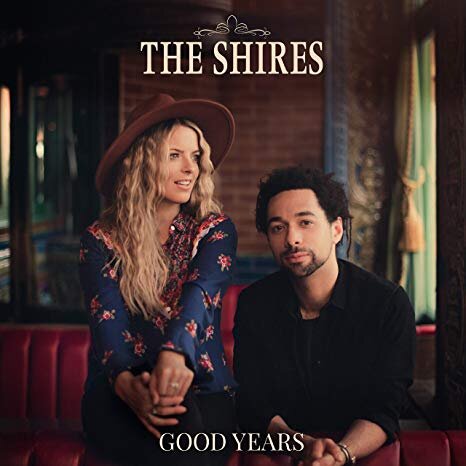
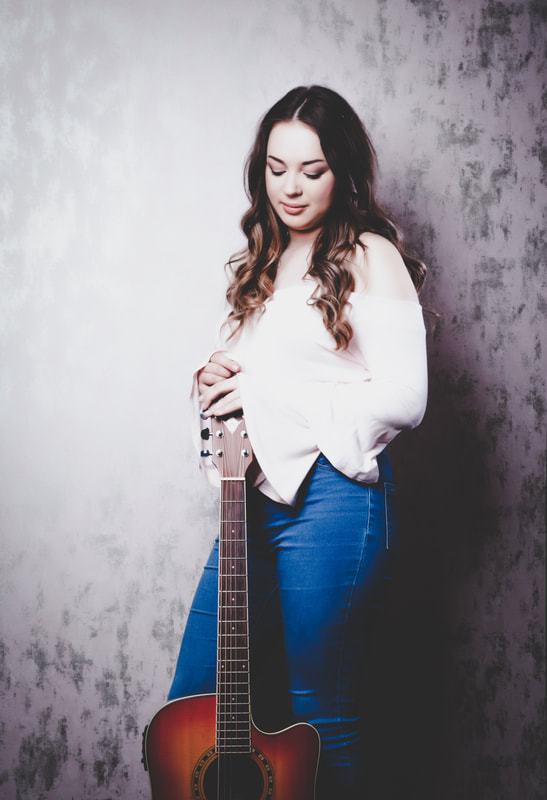
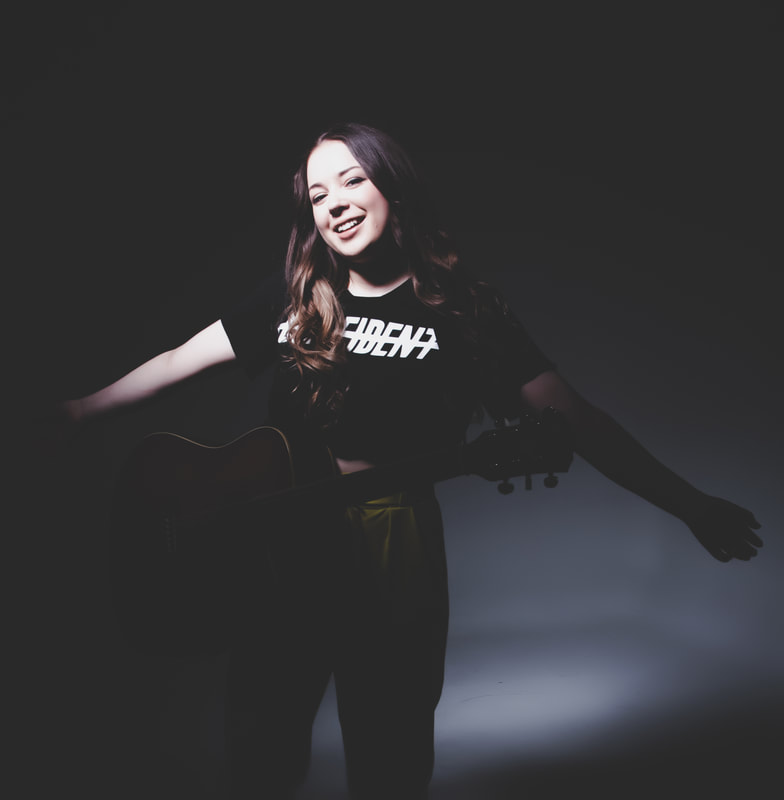
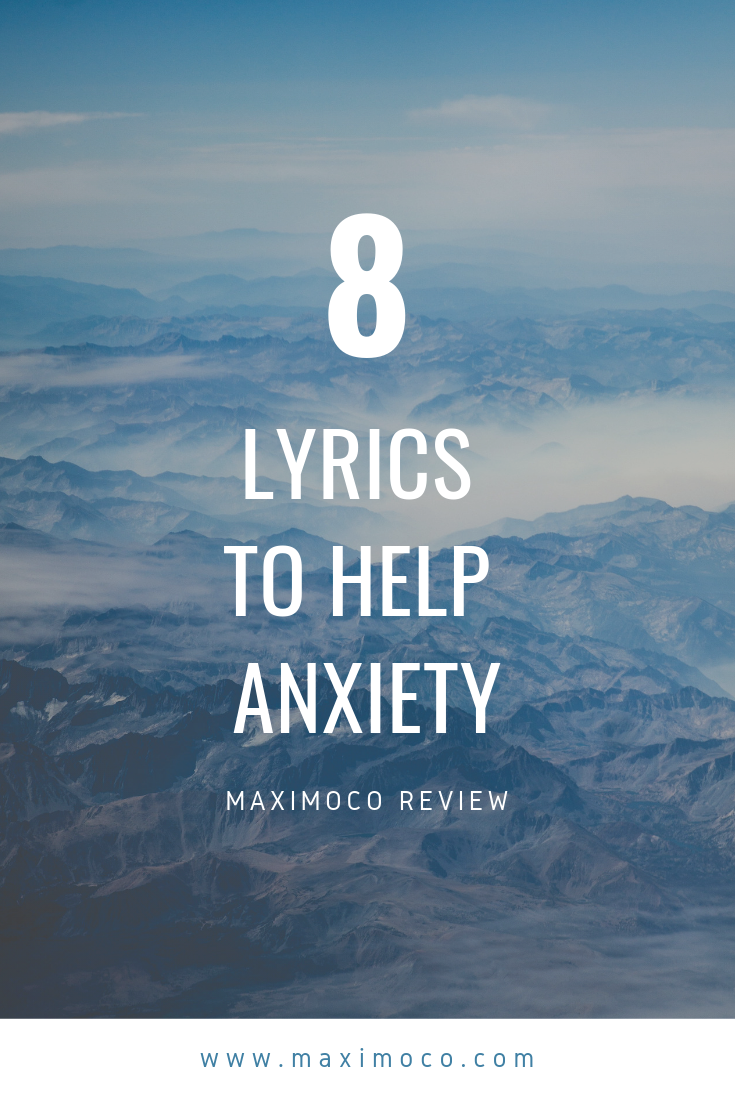
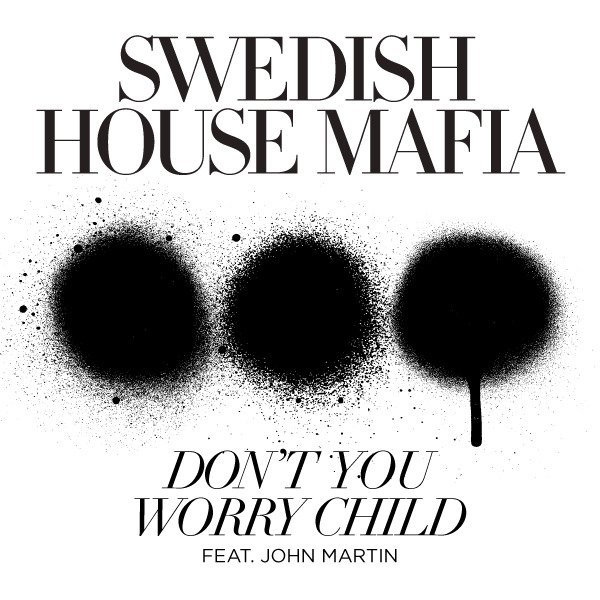
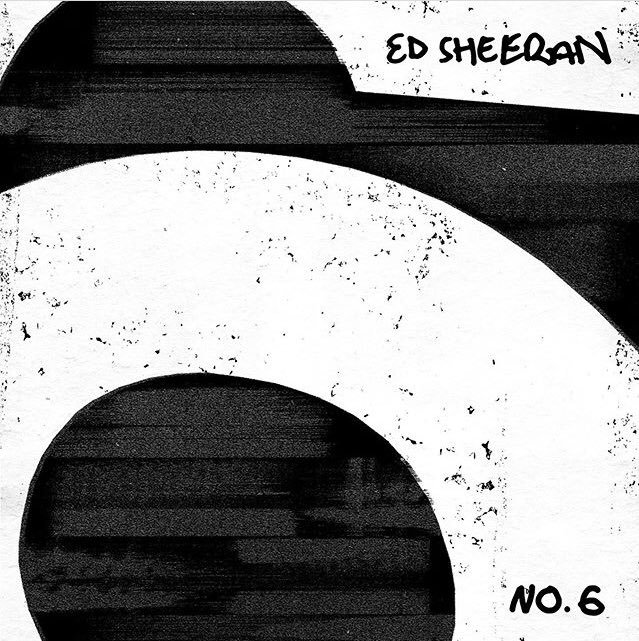
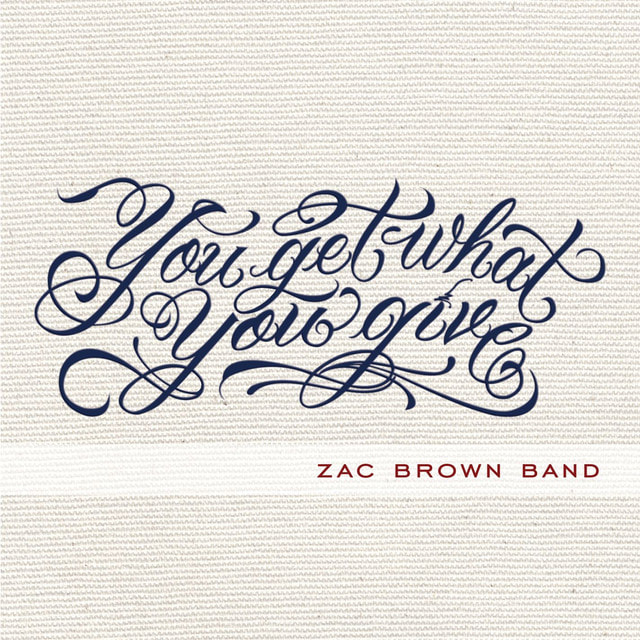
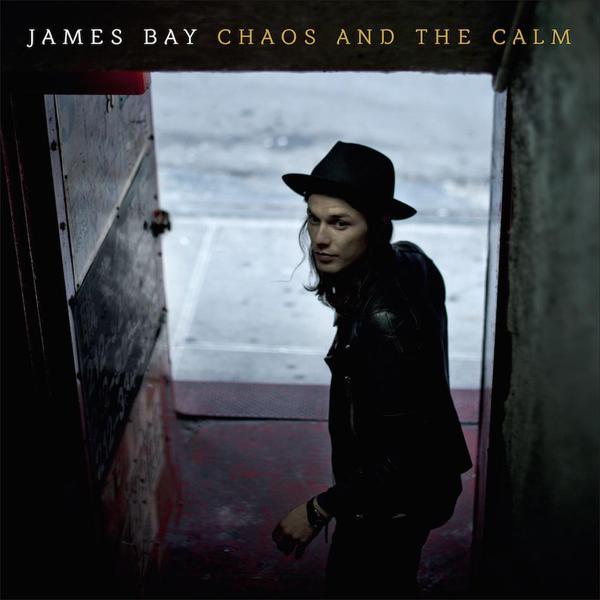
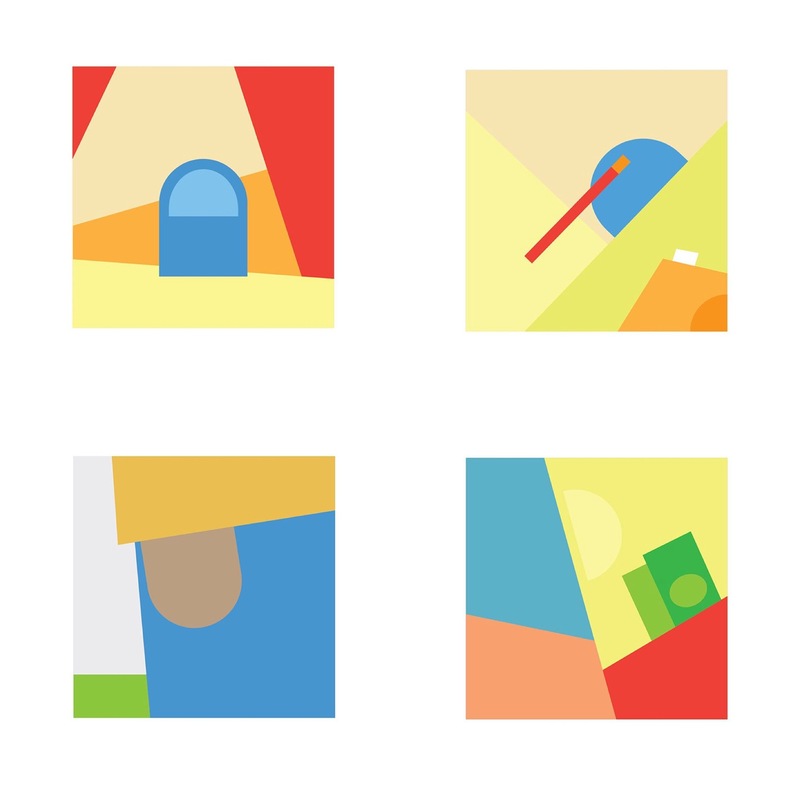

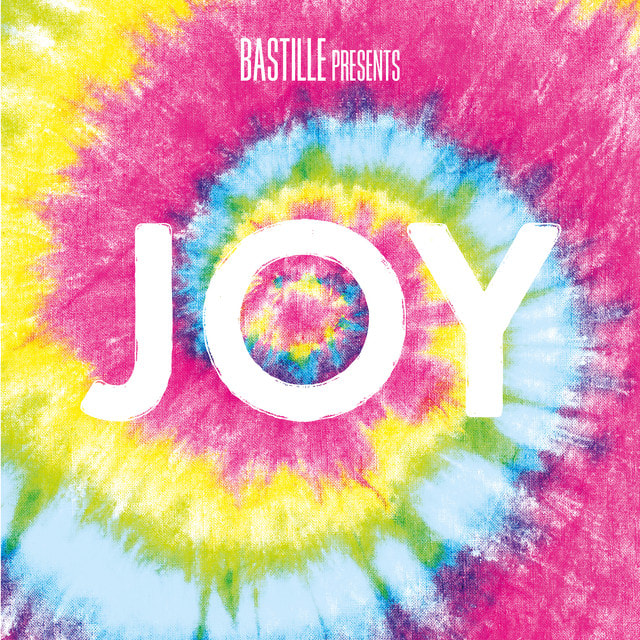
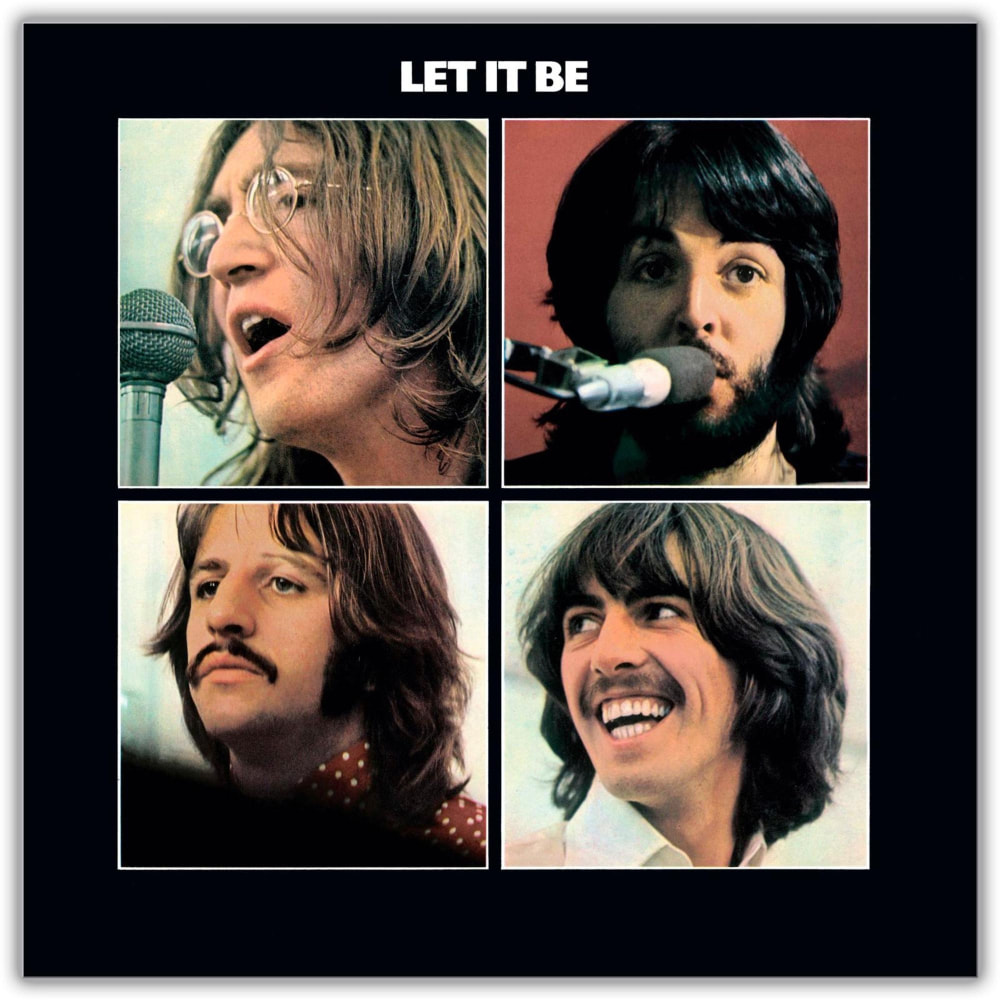

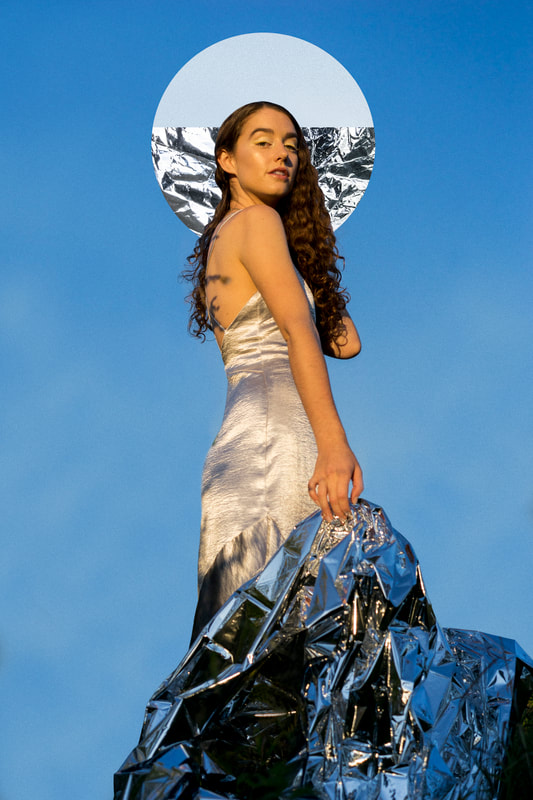
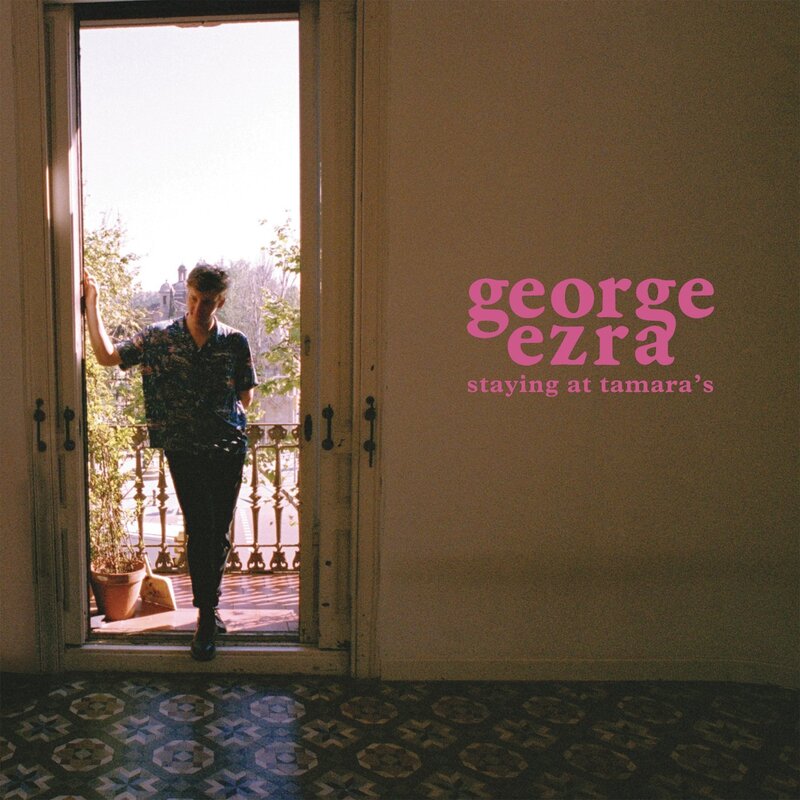
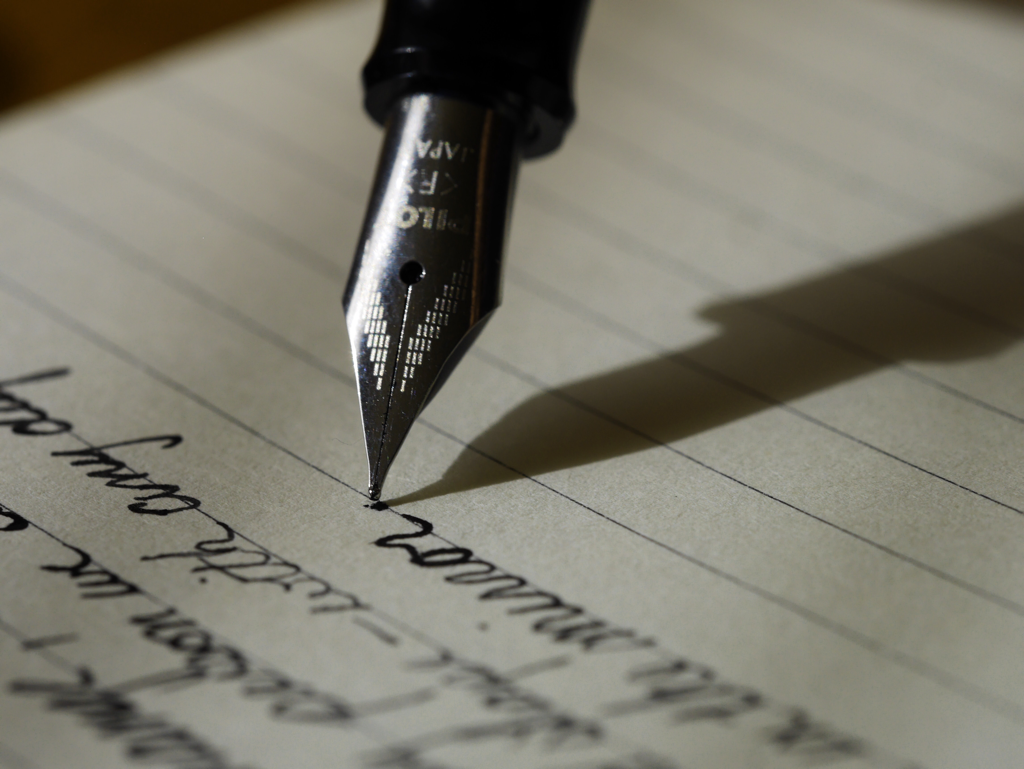



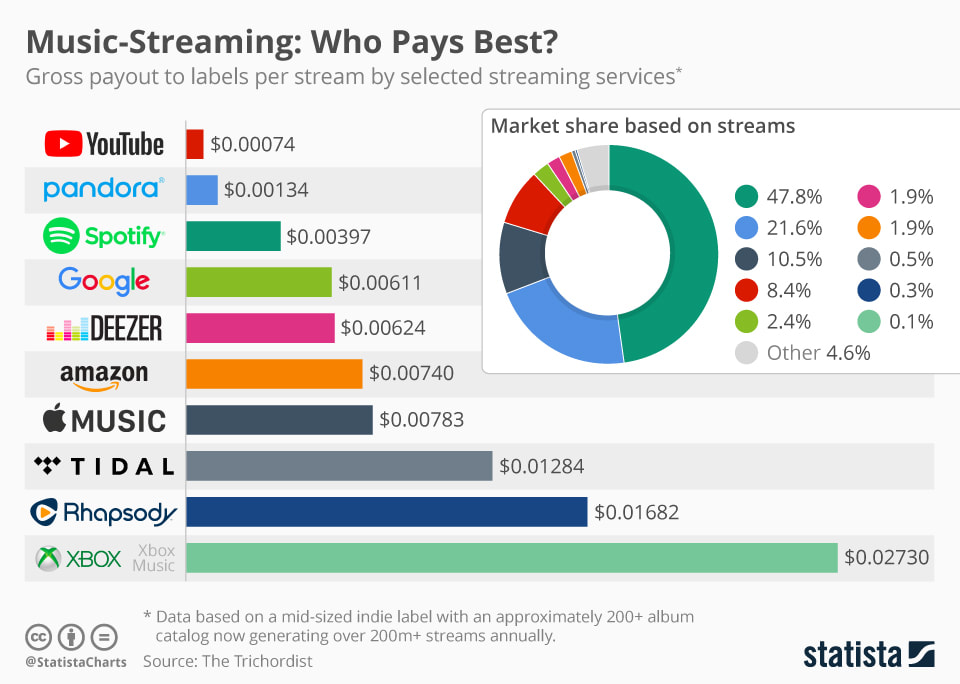
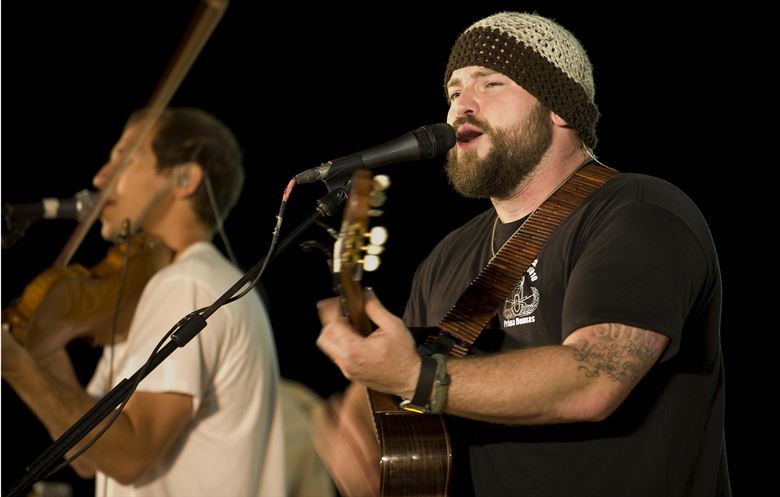
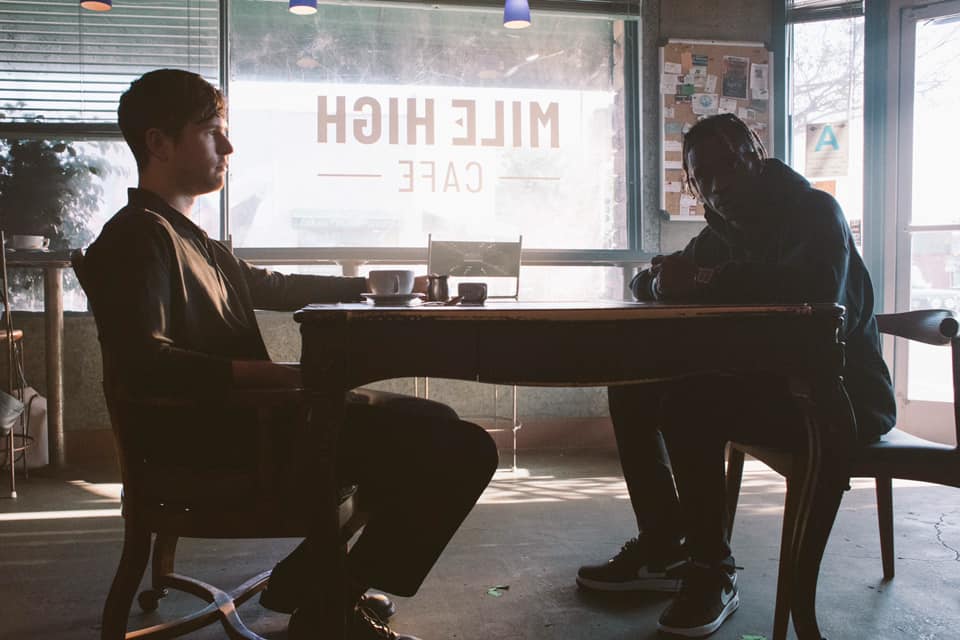
 RSS Feed
RSS Feed